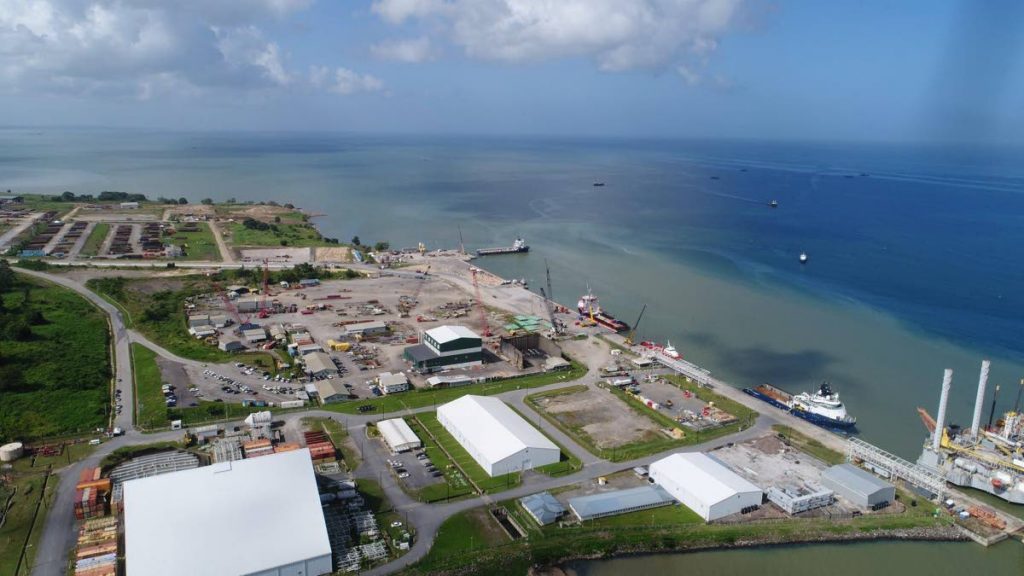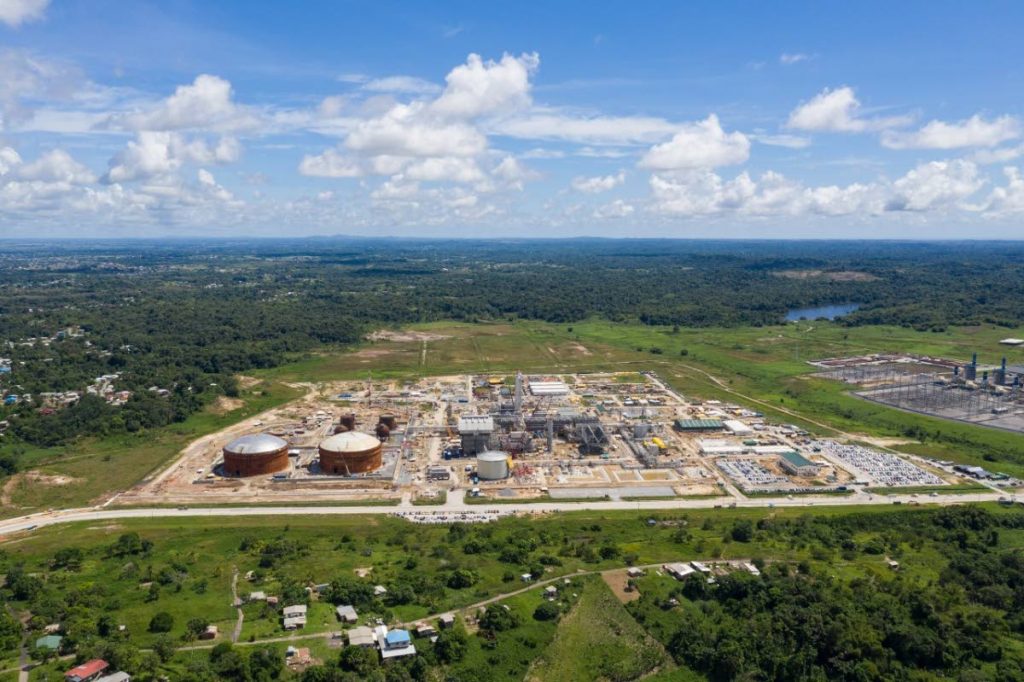NEC finds new energy in renewables

The global energy landscape is changing and the National Energy Corporation – or National Energy – is evolving its business model to adapt.
“Our vision of being a global leader in the development of sustainable energy-based industries,” Dr Vernon Paltoo, National Energy’s president told Business Day recently.
But what exactly does that mean? Well, Paltoo assured, it doesn’t mean a total 180-degree turn away from hydrocarbons – at least just yet. But rather, it’s coming up with ways to better leverage these existing, finite resources and augmenting them with renewable sources of energy, creating new opportunities within a sector for which the country is already well-known.
“It does not mean that we are ignoring the gas industry or the gas industry is not important. It is just that we are shifting the focus within the gas industry to applications and projects that would use less gas and projects that are also geared towards building a sustainable energy industry and in harmony with the renewable energy and energy efficiency,” Paltoo said.

The National Energy, a wholly-owned arm of the National Gas Company, is the state agency charged with critically examining and then implementing strategic energy projects – right now, the main consideration is renewable energy. National Energy is spearheading discussions on behalf of the government with renewable energy investors, working out the basics of logistics, regulations and implementations. The government has made a stated mandate that 10 per cent of the country’s energy should come from renewable sources by 2021 and reducing carbon emissions and greenhouse gases in line with Paris Agreement protocols by 2030. While meeting a 2021 timeline is unlikely, the first phase has begun: in February, Cabinet approved a bid from a multinational consortium including BPTT, Shell and British renewables company Light Source (partly owned by BP) to construct the first renewable energy project in TT.
Other projects being considered for long-term development include the potential for LNG bunkering, methanol as an alternative fuel, photovoltaic (solar) panel manufacture, rare-earth metal processing for battery storage and applications in agriculture. It’s also actively evaluating the applications of hydrogen as the fuel of the future – and how to ensure TT is at the forefront of that movement in a way that the country led world-wide momentum with LNG.
“The ultimate goal is to drive alternative energy solutions for the long-term sustainability of the sector … That will involve total decarbonisation (net zero carbon emissions) and essentially driving towards the hydrogen economy.
“What I mean by hydrogen economy is using hydrogen as the primary fuel, instead of gas, and that essentially is where the future is going.” Right now, it’s about getting the cost of hydrogen fuel down to a competitive level, but in a few decades, he said, it could eventually replace fossil fuels.
Renewable transformation
For now, though, the focus is one the consortium renewables project – which will effectively establish a renewables industry in TT. Paltoo acknowledged that it was “not a simple task” getting regulatory approvals.
“It's a new industry that has to be built. We have facilitated its development but at the same time, we are assessing the opportunity for state participation, as was done in the 1970s and 1980s,” he said. The state, then, is considering the option of equity investment as the country enters a new phase of industrial development.

Given that negotiations, while advanced, are ongoing, Paltoo did not want to comment in detail, but noted that some of the partnership would likely extend into infrastructure.
What he did note, however, is that the country would require a culture change – or rather, shock – if it were to fully transform into a more sustainable and conscious use of energy.
“We are accustomed to cheap energy, right – we are very accustomed to cheap energy. We have to change how we (use energy), in our homes and in our businesses, in terms of how we approach this whole thing about energy efficiency and sustainable energy. It’s not something that can be done overnight, but it has to be a structured programme,” he said. National Energy, he said, assisted in a national energy efficiency and conservation report that is now with the Cabinet but whatever plan is enacted will need to start from kindergarten. Education will be the key to culture change, starting with children – who would also encourage parents – on the importance of energy efficiency.
National Energy has already started to lead from the front. Paltoo explained that the company has sponsored a solar house at the UTT to encourage research and development for renewable energy in TT and will be installing solar panels on its own buildings soon.

“(We want to) demonstrate that there is an economic alternative to the use of traditional electricity. That’s why we have this installation as a demonstration so people can actual see it and we can help convey the message that this is real. And this is important from a country perspective. So, we have to walk the talk.”
When asked about the economic viability of solar in a country where electricity delivered from the national grid is so much cheaper, Paltoo tried to respond with equanimity. “From a non-subsidised point of energy generation, (renewables are) very competitive if you look at the real costs of natural gas in the value chain.” Even with cheap electricity, Paltoo noted that, with covid19 regulations and more people working from home and using more resources like air conditioning all day, consumers seeing an increase in their electricity bills might be more inclined to consider renewables.
Of course, talk of diversification and renewable energy is not new in the country’s development discourse. But, Paltoo insisted, this transformation is a priority and high on the administrative agenda in terms of creating a more sustainable economy. “The Ministry of Energy is committed and working aggressively to make sure we get these projects done on schedule,” he said.


Comments
"NEC finds new energy in renewables"